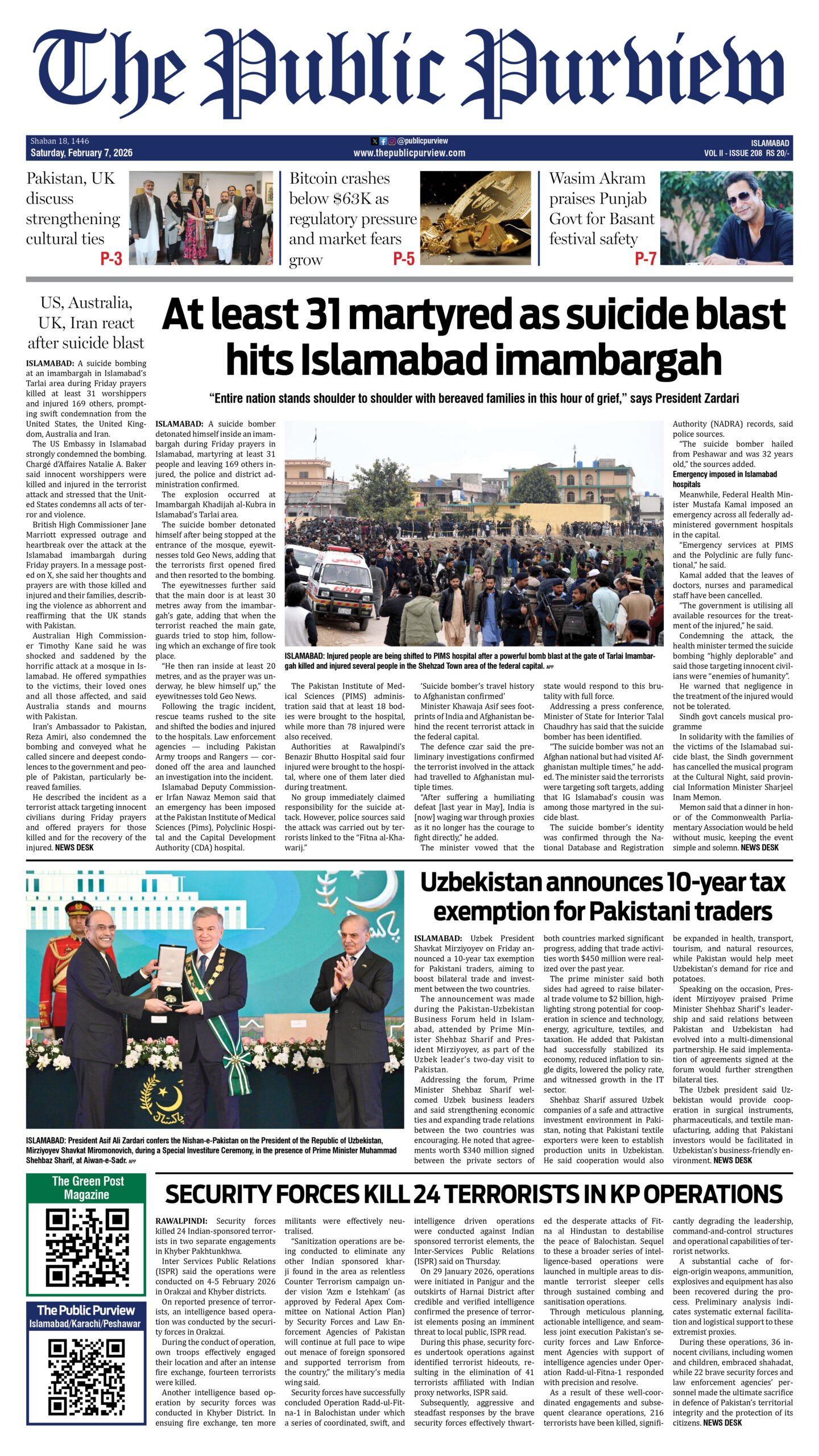By : Salman Shakir
Iqra University Islamabad campus
Department of international relations
In the era of the internet, information is more valuable than crude. It is not just numbers, names, and clicks anymore, it’s cash. From online social media surfing to online banking habits, every Byte of information we produce says something about us, what we’re doing, and how we think. In the developed world, this data is typically safeguarded by robust privacy regulations. Not in Pakistan. The nation is at a dangerous crossroads of rapid digital growth and dangerously inadequate data protection.This article considers the crisis of data privacy in Pakistan intensifying how it is impacting people, what is (or isn’t) being undertaken by the government, and what must be done prior to the crisis intensifying into a catastrophe.
A digital boom without any digital safety has been witnessed in Pakistan over the last ten years, with meteoric growth in internet penetration and smartphone penetration. By 2024, the Pakistan Telecommunication Authority (PTA) reported more than 190 million cellular subscribers and 130 million broadband subscribers. Social media platforms such as Facebook, TikTok, and Instagram have become a household name, and online banking, e-commerce, and digital wallets have become increasingly popular in place of conventional payment methods. But this development has not been accompanied by adequate digital literacy or protection legislation. Consumers are kept in the dark about how their personal information is being collected, shared, or manipulated. While businesses, both local and foreign, are collecting data at their discretion, often without asking or making known.
The legal vacuum in Pakistan’s data protection is a major concern. There is no proper data protection law in Pakistan. Though the Prevention of Electronic Crimes Act (PECA) 2016 says something about cybercrime, it doesn’t address matters like informed consent, third-party disclosure, or the rights of individuals over their personal data properly. The Personal Data Protection Bill has been pending since 2020, and there is no law yet. The legal loophole puts millions of Pakistanis at risk. Advertisers and technology companies are free to use user data as they wish. Worse still, sensitive data from government sites have been leaked or sold in the past, and very little has been done or held accountable.
Surveillance over privacy is yet another concern emerging in Pakistan. Under the pretext of national security, law enforcement agencies have been entrusted with wide powers to monitor the digital existence of the citizens. Lacking a strong regime of privacy, such surveillance can easily convert into misuse of civil rights. There have also been a few incidents of political rivals, activists, and journalists being spied on using spyware or having their personal chats intercepted and published on the internet. In those cases, online privacy is a privilege of the powerful and not a right to all.
Data breaches are a silent epidemic in Pakistan, with weak cybersecurity infrastructure and a lack of legal oversight. In 2020, 115 million mobile users’ data of the Pakistani public were up for sale online, including names, CNIC numbers, telephone numbers, and addresses. In another case, Sindh residents’ personal information was said to have been leaked from a government database, but no one was ever held responsible. Such misuses are often underreported. Victims rarely discover their data has been breached, and even then, they are powerless.Identity theft, financial fraud, and personal harassment flourish in secrecy, as institutions continue to underemphasize the significance of effective data protection policies.
The cost of ignorance about data privacy is high in Pakistan. The young generation is setting the country’s digital future, but most users do not read privacy statements, understand app privileges, or inquire about what will become of their information when they tap “Allow.” That is because schools have little digital literacy, there are few public campaigns, and there is no national debate on digital rights. Tech giants take advantage of the gap. Applications collect more information than you need, trail you across platforms, and implement AI in forecasting your behavior without your complete awareness or permission.The outcome? A population unwittingly giving away its most important resource, its information for free.
Accountability for data protection is lacking in Pakistan. State agencies and businesses must be held accountable for how they collect and store information about users. Pakistan lacks an autonomous Data Protection Authority that can audit, fine, or regulate the offenders. The structures that exist, such as under the FIA or PTA, are more focused on policing content than on citizen protection. Furthermore, whistleblowers and internet rights activists normally face threats or intimidation whenever they make public comments about such matters.Without accountability and transparency, the nation’s data infrastructure will be left vulnerable to risk, putting not only citizens, but national security, in danger.
The global perspective on data privacy is worth considering. Countries like the European Union have implemented the General Data Protection Regulation (GDPR), a gold standard for digital privacy. Even developing nations like India and Brazil have implemented strong data protection laws. Pakistan cannot lag behind. As international business and services look to grow in the region, the lack of legal protection can deter foreign investment and
isolate the nation in the global digital economy.
The road ahead for Pakistan’s data privacy crisis requires extreme reforms. To address the crisis, the Personal Data Protection Bill needs to be passed immediately with clear definitions, strict penalties, and user-centric rights. An independent Data Protection Agency needs to be established to oversee, enforce, and regulate data processing in all industries. Public awareness campaigns are necessary to raise awareness among citizens, especially students, about online hygiene, consent, and safety. Strong cybersecurity requirements need to be implemented for public and private institutions alike to provide minimum safeguarding of user information. Coordination with international organizations is necessary to align Pakistan’s policies with international best practices and standards.
Privacy is a human right; finally, information is not merely data, it’s a mirror of who we are. How we obtain, use, and protect it determines not only our freedom on the web but our security and dignity in the offline world too. Pakistan can’t stand by. The cost of inaction is too high: a world in which citizens are monitored, manipulated, and exploited because we fail to protect the new currency of the digital world. The crisis exists. The solution is available. It’s time Pakistan made data privacy not a luxury but an inherent right .






 Today's E-Paper
Today's E-Paper